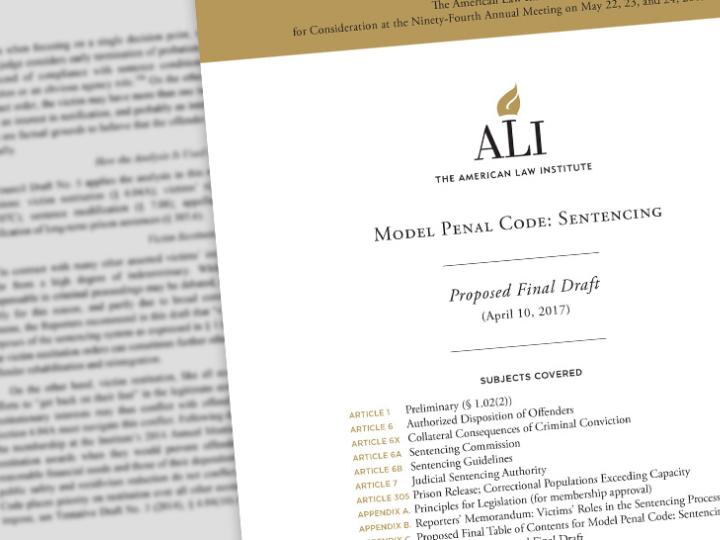Citing the Proposed Final Draft (PFD) of Model Penal Code: Sentencing, the U.S. District Court of the Eastern District of New York dismissed restitution claims due to lack of merit.
The case involved a defendant who was required to pay restitution under three counts, two for bank fraud and one for falsifying statements in a tax return. As the defendant was about to be sentenced by the court based on a plea agreement that provided for extensive restitution to the two banks that were harmed by defendant's scheme, several additional individuals and entities sought to intervene, claiming that they were also owed restitution as victims of defendant's fraud.
In denying their request for restitution, the District Court addressed the relationship between victim restitution and other goals of criminal sentencing and cited Appendix B of the PFD, which states:
In contrast with many other asserted victims’ interests, an interest in restitution does not suffer from a high degree of indeterminacy. While the scope of losses that should be compensable in criminal proceedings may be debated, the outcome sought is not an abstraction. Partly for this reason, and partly due to broad consensus among American criminal-justice systems, the Reporters recommend in this draft that “victim restitution” be added to the general purposes of the sentencing system as expressed in § 1.02(2). In addition, cogent arguments exist that victim restitution orders can sometimes further other substantive goals of the system, such as offender rehabilitation and reintegration.
On the other hand, victim restitution, like all economic sanctions, can impair offenders’ efforts to “get back on their feet” in the legitimate economy and law-abiding society. Victims’ restitutionary interests may thus conflict with offender reintegration and public-safety goals. Section 6.04A must navigate this conflict. Following debate, and in accordance with the vote of the membership at the Institute’s 2014 Annual Meeting, § 6.04A has been drafted to prohibit restitution awards when they would prevent offenders from being able to meet their own reasonable financial needs and those of their dependents. See § 6.04A(6). When core interests of public safety and recidivism reduction do not conflict with an award of victim restitution, the Code places priority on restitution over all other economic sanctions that a criminal court may impose.
The new individuals and entities seeking restitution also relied on the Mandatory Victim Restitution Act (MVRA). However, the District Court noted that MVRA is not designed to remedy all harms caused by a defendant’s conduct, and although the alleged restitution victims might have been harmed as a result of some fraud perpetrated by defendant, they were not harmed by the specific bank fraud schemes for which defendant was being sentenced.
The Court also mentioned that ALI aligns with the MVRA in providing that the mandatory restitution scheme does not apply where “determining complex issues of fact related to the cause or amount of the victim’s losses would complicate or prolong the sentencing process to a degree that the need to provide restitution to any victim is outweighed by the burden on the sentencing process.”
